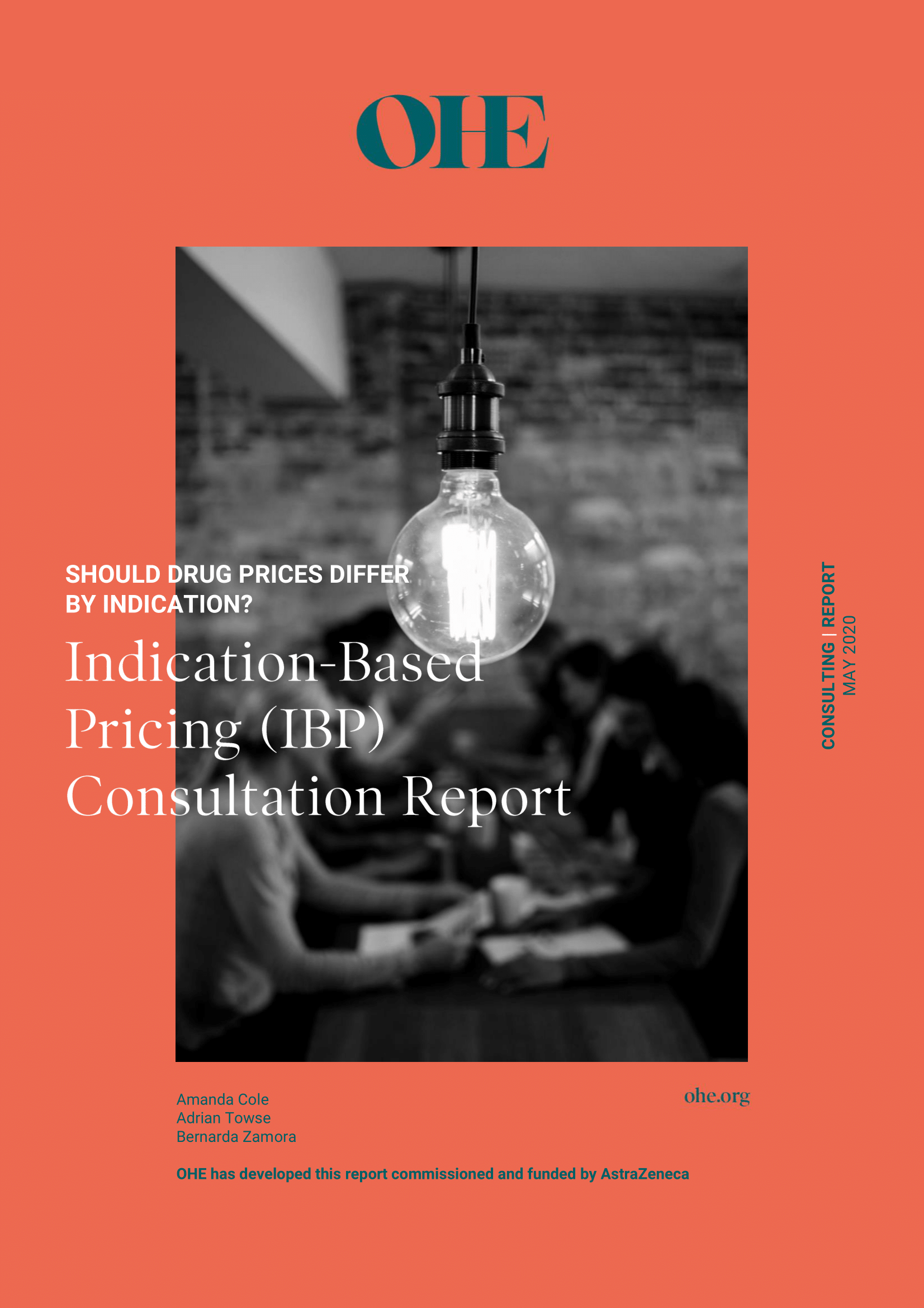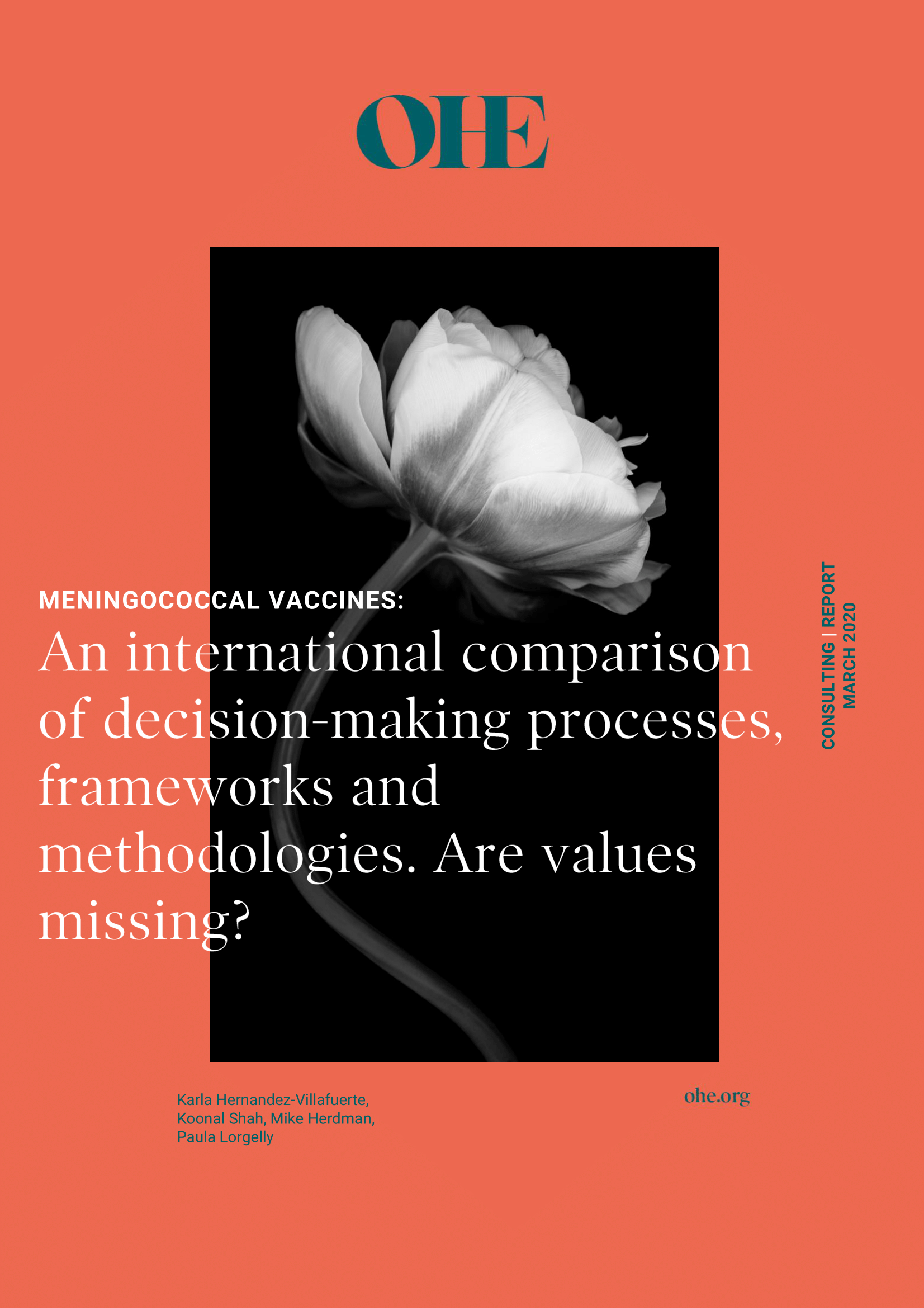Indication-Based Pricing (IBP) Consultation Report


Just published in BMJ Open: The effect of religion on the perception of health states among adults in the United Arab Emirates
The way in which people value health is likely to vary across countries, due to social and cultural factors. In Muslim-majority countries such as the United Arab Emirates (UAE), for example, people’s religious views may lead to particular ways of thinking about the trade-offs between quality of life, length of life, and death. The UAE is also unique in terms of its health needs and the medical-seeking behaviour of its population.
Just published in BMJ Open is a qualitative study of the effect of religion on the perception of health states amongst a sample of adult Emiratis. The paper reports findings from a follow-up questionnaire administered as part of a broader study examining the feasibility of using stated preference methods to elicit EQ-5D-5L values in the UAE. The feasibility study reported evidence of striking differences in the way that Emiratis valued health states compared with other cultural groups.
Eighty-one percent of survey respondents claimed that their perception of health states was influenced by their spiritual or religious beliefs. Thematic analysis was used to analyse responses to the follow-up questions. The authors identified a recurring theme of fatalism, comprising three subthemes:
A second main theme identified was the preservation of life. This theme comprised subthemes relating to appreciation, fear, acceptance and patience. Several respondents made comments suggesting that the valuation questions had made them appreciate their health and reminded them to be more religious.
The study has provided insight into the ways that religious and spiritual beliefs influence health state values amongst adult Emiratis. The findings emphasise the need for further work to establish locally relevant value sets for Middle Eastern countries for use in decision making, rather than relying on value sets from other regions.
The research was undertaken by OHE’s Koonal Shah and Nancy Devlin in collaboration with researchers at the United Arab Emirates University and Eli Lilly & Company. The feasibility study was summarised in a previous OHE blog.
The paper is available for free download here (open access).
Elbarazi, I., Devlin, N.J., Katsaiti, M.S., Papadimitropoulos, E.A., Shah, K.K. and Blair, I., 2017. The effect of religion on the perception of health states among adults in the United Arab Emirates: a qualitative study. BMJ Open, 7, e016969.
Related OHE research:
An error has occurred, please try again later.
This website uses cookies so that we can provide you with the best user experience possible. Cookie information is stored in your browser and performs functions such as recognising you when you return to our website and helping our team to understand which sections of the website you find most interesting and useful.
Strictly Necessary Cookie should be enabled at all times so that we can save your preferences for cookie settings.
If you disable this cookie, we will not be able to save your preferences. This means that every time you visit this website you will need to enable or disable cookies again.
This website uses Google Analytics to collect anonymous information such as the number of visitors to the site, and the most popular pages.
Keeping this cookie enabled helps us to improve our website.
Please enable Strictly Necessary Cookies first so that we can save your preferences!